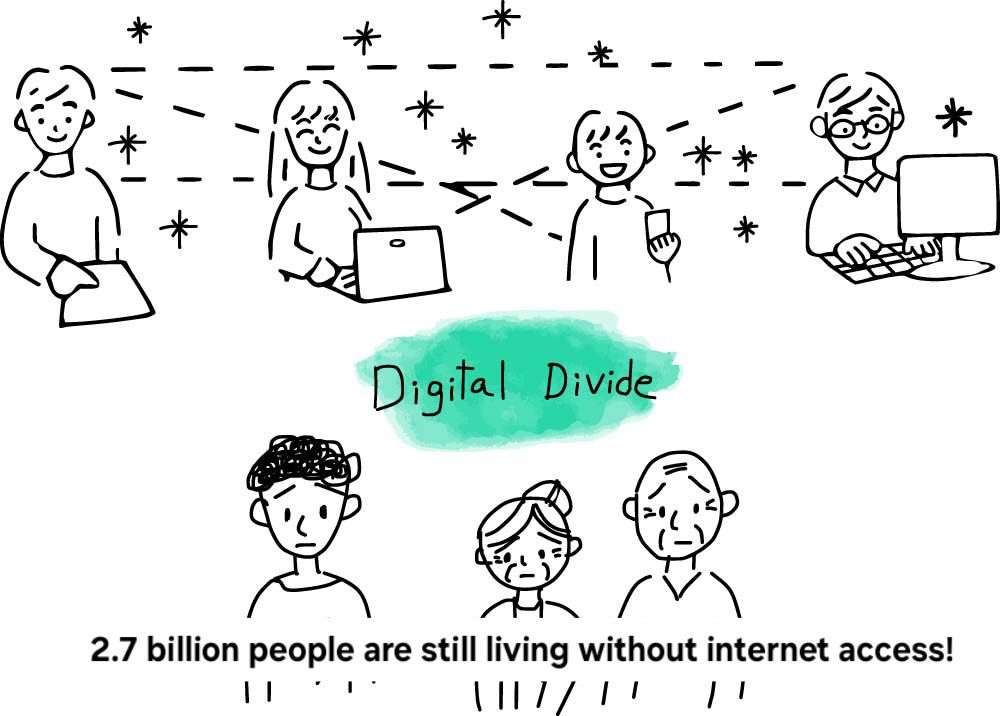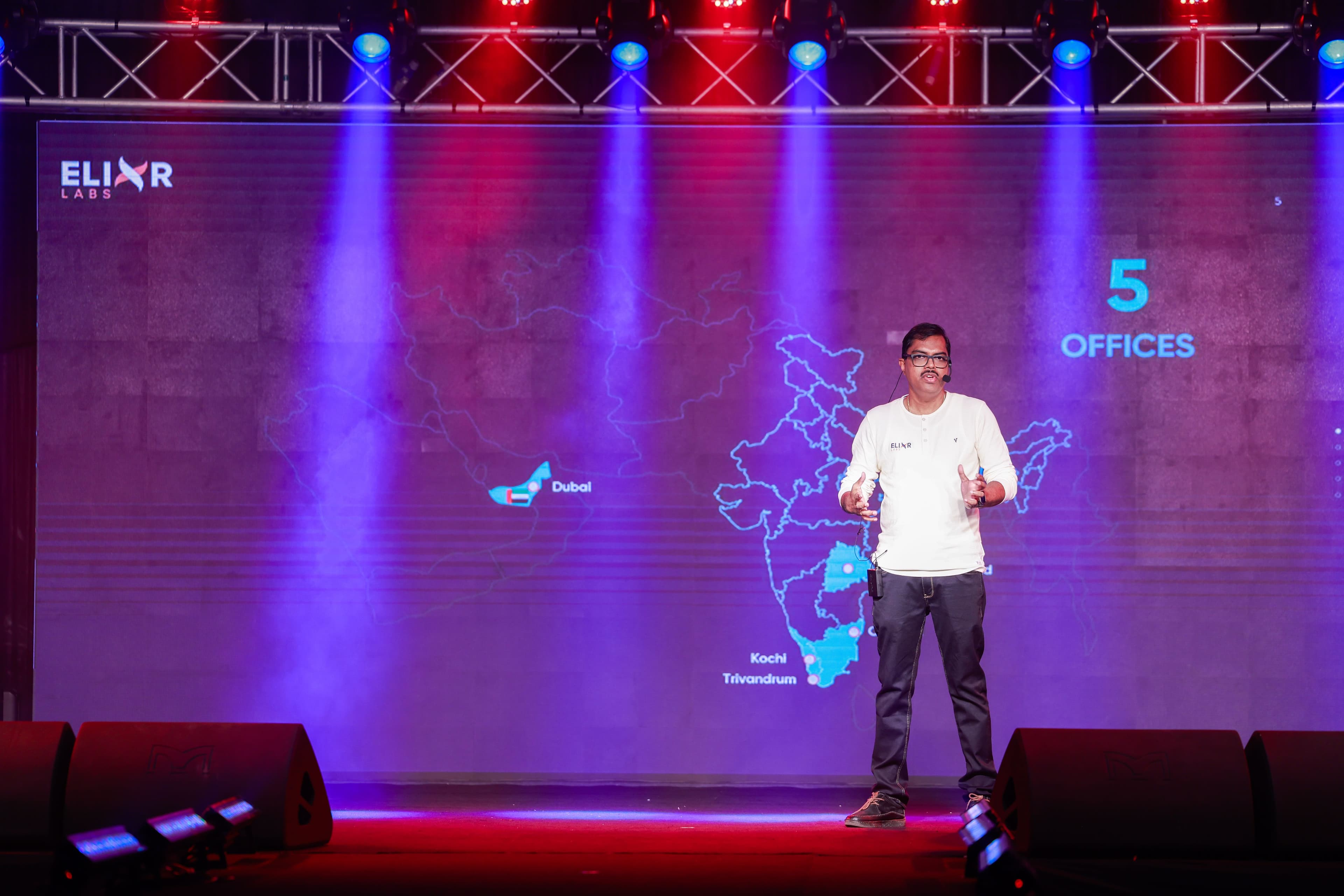
Can you imagine a world, where you wake up one fine morning and you realize that the internet is gone forever. You are unable to access your social media, or even simple tasks like researching a recipe become daunting tasks.
You should also understand that this is not an exaggeration. This is the reality for a whopping 2.7 billion people in the world.
Nearly one third of the global population is still living without internet access.
As technology is changing for good, being unaware of the internet isn’t just an inconvenience. It actually stops you from getting better education, better healthcare access, and more opportunities.
Is that so, then what’s stopping so many people from getting into this digital world of never ending opportunities? You might wonder!
How the Lack of Internet Affects Children's Education?
Everything is shifted to online nowadays. So, how can it be possible for children to study without the help of the internet? Studies show that in developing countries, only 57% of schools have internet access.
This data shows that millions of children around the world are still managing their studies without reliable sources available online. They are deprived of the opportunities such as interactive learning platforms, educational videos, and up-to-date information about their studies that can refine their education.
We consider that knowledge is power, then these children are missing these greatest fortunes in their life by lacking the access to the internet. Because, in today's world, the internet can contribute a great deal to the educational system.
Also, unavailability of the internet doesn’t just stop them from getting proper academic knowledge. But, it limits their ability to develop digital literacy, which is very essential for them in the modern workplace.
Without developing these potential skills, they will face major problems in their future such as less job opportunities and limited payrolls.
Promoting Technological Advancements in Healthcare
Technology evolves for the better, as we can witness so many advancements in the healthcare sector just like any other field.
We all know the importance of the healthcare industry, the internet has changed almost everything, by impleming advancements such as telemedicine. We can easily provide medical consultation and treatment to people all over the world.
However, this life-saving technology can be only effective, when the patient has a reliable source of internet connection.
When we talk about the 2.7 billion people, the reach of telemedicine remains a mystery.
They are unknowingly left with the limited healthcare options. When an emergency situation arises, this lack of access can be a matter of life and death.
We can witness a significant growth in the healthcare industry, by promoting technological advancements to common people.
Moreover, the lack of internet access stops people from attaining better health information which might help them manage chronic health issues, be able to understand medical instructions, or adapt to even healthier lifestyles.
The digital divide in healthcare makes things worse and leaves the common people unprotected without necessary support.
What is Digital Divide?
The digital divide can be defined as the significant gap between people who have access to modern information and communication technologies and those who still do not have these luxuries in their lives.
This difference can be caused by several factors such as low literacy and income levels, geographical barriers, lack of motivation, and limited opportunities to access the technology. These can be the potential reasons to increase the digital divide among the population.
When we talk about the internet exposure amongst the global revolution, specifically between women and older populations. This gap is increasingly visible.
If we take financial technology as an example, only 40% of the population under the age of 40 make use of digital payments. These numbers drop to less than 25% among those aged 60 and above.
This data reveals that it's high time to implement inclusive policies and initiatives aimed at changing this situation.
To resolve these issues, we need to bring new methods to get equal access to technology for all age groups, genders, and socio-economic backgrounds.
How do digital platforms contribute to social connectivity?
Social connectivity and networking through digital platforms play a crucial role in today’s world. Because every small thing takes place with the help of digital mediums.
These platforms help you to connect with people and stay in touch with your family, friends, and colleagues no matter how far they are living.
It also provides more opportunities for professional networking, knowledge sharing, and community building. Through digital platforms, now people can engage in collaborative projects, access supporting networks, and participate in various cultural fests held online.
It promotes a sense of belonging and increases both personal and professional growth.
What role does technology play in economic growth?
To improve the economic status of today, high-end technology and internet access are inevitable. Today’s job market requires more internet skills like never before.
Without internet access people are deprived from potential job opportunities, like e-commerce, and digital banking.
This exclusion keeps people in poor financial situations. Also, it badly impacts the economic growth of every country, especially in areas with poor or no internet access.
In this crisis small businesses in these areas never get the opportunities to expand their business online to simplify their operations
This digital divide does not support entrepreneurship and innovative ideas of the young generation, which are essential for economic development.
As we understand more intricacies of the digital divide and its far reaching impacts, it becomes very evident that resolving these issues is not just a matter of convenience, rather it’s a necessity for development.
So, how can we come together as a global community to make a difference in this problem, for every individual regardless of their geographical barriers, and their backgrounds has access to the opportunities this digital world can offer?
What innovative solutions can we implement to create an inclusive digital future for all?

Elixr Labs Cloud Computing Implementation And Its Impact On Pandemic Healthcare

Beyond Orders: Inspiring Action Through Effective Leadership!

Confess! How Often Do You Find Yourself Checking On Your Phone Throughout The Day?
